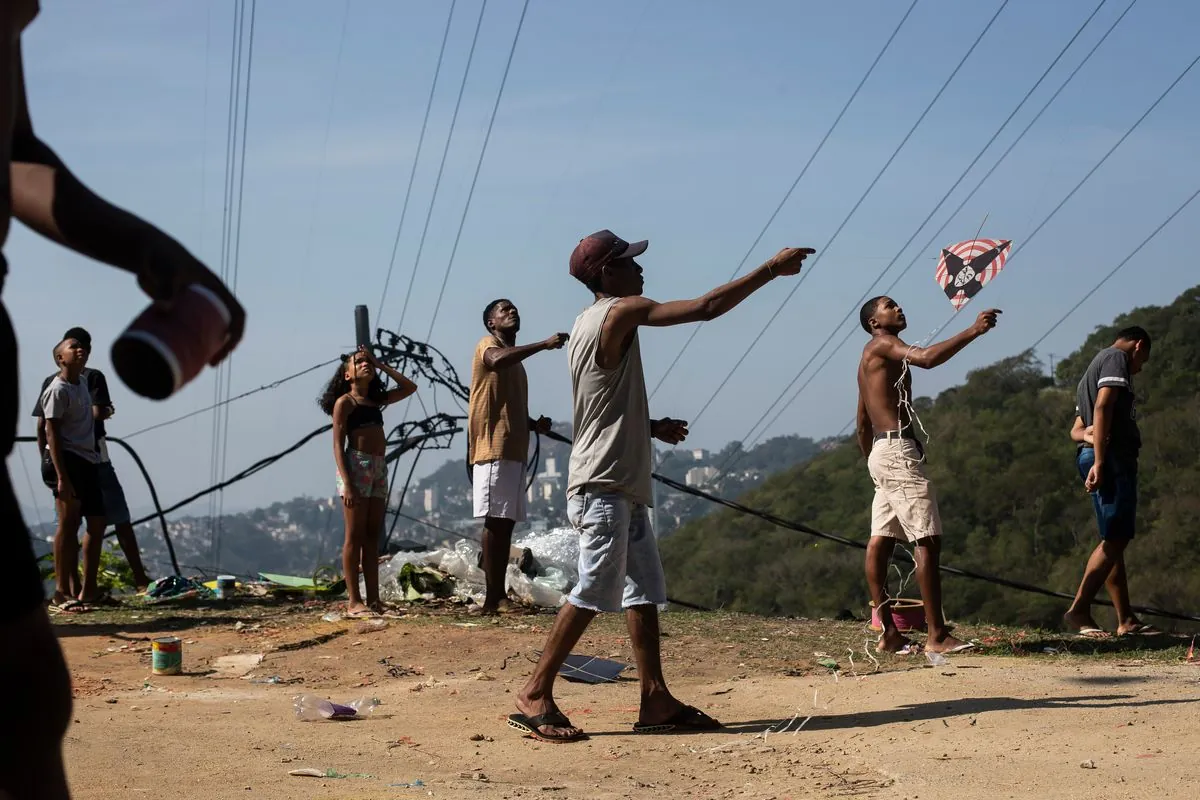In a significant shift from tradition, Brazilian lawmakers are contemplating a ban on kite flying, a pastime deeply rooted in the country's culture. This move comes in response to the alarming transformation of the activity into a perilous competition involving razor-sharp wires.
The proposed legislation aims to prohibit the production of "cerol," an industrially manufactured twine that has turned kite flying into a hazardous pursuit. Violators could face up to three years of imprisonment and substantial fines. This initiative seeks to address the growing concern over injuries and fatalities associated with competitive kite duels.
Kite flying, known as "pipa" in Brazil, has a rich history dating back to the Portuguese colonization in the 16th century. Over time, it has evolved from a harmless recreational activity into a fierce competition, particularly in urban areas and favelas. The sport's competitive nature has led to the use of glass-coated lines, locally termed "manja," which can cause severe injuries.
Leonardo Durães, a victim of a kite-related accident, emphasized the gravity of the situation: "As soon as a situation is inflicting harm, including causing fatal victims, that's when your playtime's over." His experience, requiring 33 stitches after an encounter with a kite line, underscores the dangers associated with this evolving practice.
The proposed ban has sparked debates about its potential effectiveness. Critics argue that prohibiting industrially produced cerol might lead to a resurgence of homemade alternatives, such as the traditional method of creating sharp powder from broken glass on railway tracks.
"I went to the hospital screaming that I didn't want to die. I'm really happy that I'm alive."
While Brazil already restricts kite fighting to designated safe areas, these regulations are frequently disregarded. The sport's popularity during school holidays and its economic impact, generating millions of dollars annually for the Brazilian kite industry, complicate efforts to enforce safety measures.
As Brazil grapples with this issue, it's worth noting that kite flying and fighting are popular in other countries as well. The practice has ancient roots, dating back to China where it was used for military purposes. Today, countries like India, Pakistan, and Afghanistan also have strong kite-fighting traditions.
The outcome of this proposed legislation will likely have far-reaching implications for Brazil's cultural landscape and public safety measures. As the debate continues, the challenge lies in balancing the preservation of a beloved tradition with the urgent need to protect citizens from its dangerous evolution.
